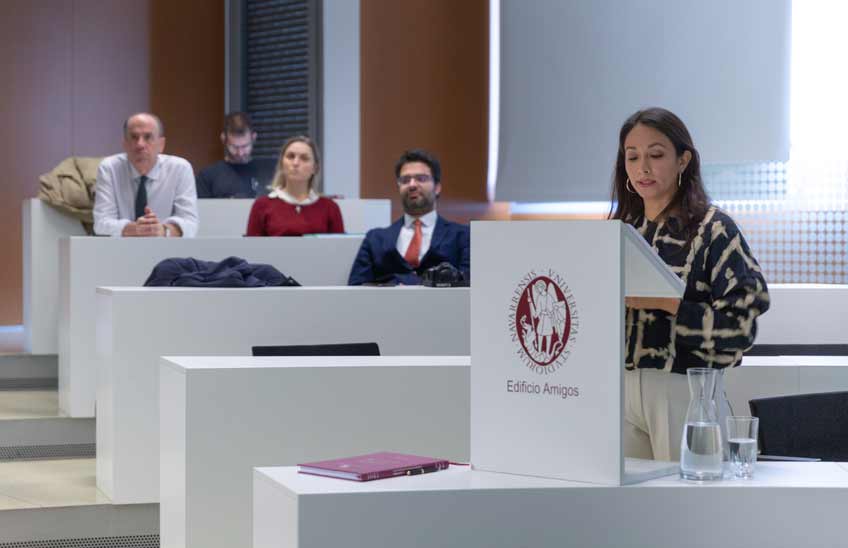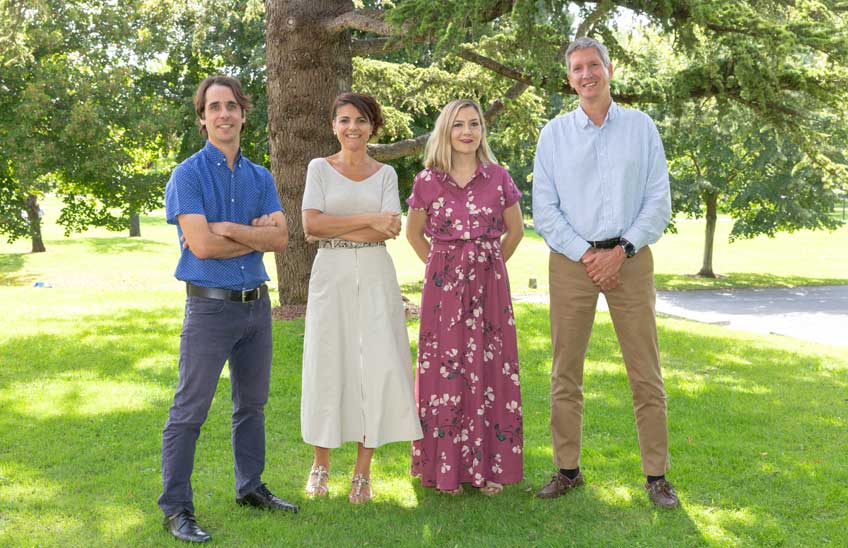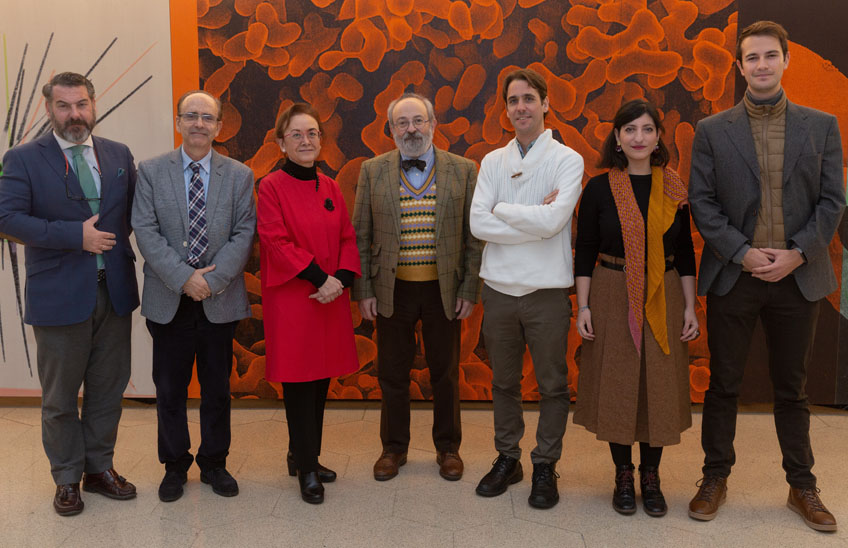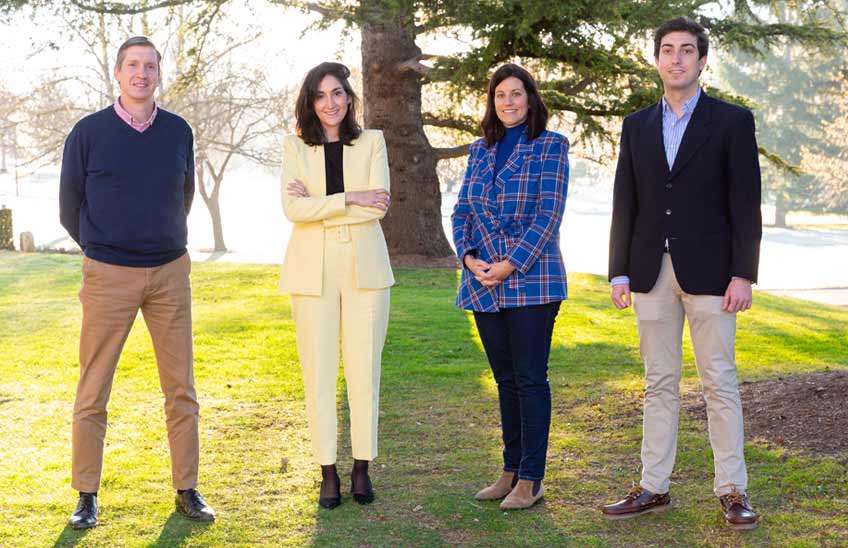A thesis analyzes self-regulation, resilience and coping styles as factors that promote the well-being of young university students.
Claudia López Madrigal has counted on a sample of 1,300 Spanish university students from campus in her doctorate, directed by researchers from Institute for Culture and Society and School of Education and Psychology.

FotoManuel Castells<br>/Claudia López Madrigal durante la defensa de su tesis, titulada ‘Evolución de los factores de bienestar psicológico en jóvenes adultos universitarios’
13 | 02 | 2023
Claudia López Madrigal has defended her doctoral thesis 'Evolution of psychological well-being factors in young adult university students'. She has elaborated it in the group 'Youth in transition' of the Institute for Culture and Society (ICS) of the University of Navarra, under the direction of Jesús de la source and Javier García Manglano, and has defended it in the School of Education and Psychology.
In his research he has focused on the factors involved in the positive development and well-being of emerging adults. To do so, he has analyzed a sample of 1,300 university students between 18 and 25 years of age, from different Spanish campus . Specifically, he analyzed "those variables considered meta-skills, such as self-regulation, resilience and coping styles," he explained.
"The marked interest in psychology in understanding the functioning of the human being from a non-pathologizing perspective has favored a perspective of development in favor of the strengths and qualities of the human being," he commented.
In his opinion, understanding the necessary pathways to achieve an adequate positive development "is especially necessary in young adults due to the individual, academic, relational and social transitions corresponding to the stage of development in which they find themselves". Thus, he considers it crucial "to identify those factors that optimize their behavior in order to offer opportunities that help improve the course of their future wellbeing".
Individual and contextual factors
Through the model Presage, Process and Product, developed by the Full Professor of Education John Biggs, Claudia López Madrigal's thesis has validated different relationships, as well as their nature and directionality, between the presage variables (age, sex and context educational), the process variables (self-regulation, coping strategies, resilience and positivity) and the product variables(prosperity and health).
First, the researcher concluded that gender is a predominantly important variable in the acquisition of competencies. Specifically, "it acts as a predictor variable of self-regulation and problem-focused coping strategies," she said.
He also stressed that, although some association and predictive effects are found, age does not determine changes in coping strategies. This supports, as he pointed out, the idea that the passage of years in itself does not produce a change in the skill of stress management.
On the other hand, he highlighted that the combined effect of age and sex "predicts some skills such as positive reappraisal, stress tolerance, adaptation to change and goal setting". This highlights "the importance of considering age and sex as variables linked to the acquisition of meta-skills".
Another of the findings of Claudia López Madrigal's thesis is that self-regulation has been shown to be an important meta-skill "that transversally favors the presence of other emotional skills such as resilience, specifically proactive resilience, and problem-focused coping strategies".
It has also determined that context educational matters: "It has been shown to be a factor linked to problem-focused coping strategies and reactive resilience factors-spirituality and stress tolerance." He has found it, along with self-regulation, to be an indirect predictor of psychological and physical health. "This sample indicates that the environment educational in which this population finds itself is related to their well-being," he argued.
As for the personal and contextual predictor variables (self-regulation, context educational, age and gender), the new doctor has indicated that they were shown to have an indirect effect on both product variables (prosperity and health).
"The combined effect of individual and contextual factors is important for the acquisition of psychological competencies, well-being and health in young university students," he concluded. As he detailed, the numerous combinations that can result from individual and contextual interaction are fundamental to understanding the needs of this developmental stage.
This thesis is related to two projects of the School of Education and Psychology: 'Motivational-affective strategies of staff self-regulation and coping with stress in the university teaching-learning process', funded by the then Ministry of Economics and Competitiveness and the European Regional development Fund [Ref. EDU2011-24805 (2012-2015)] and 'Effect of academic emotions on the teaching-learning process and the health of university students', funded by the Ministry of Science and Innovation, the European Fund of development Regional and the State Agency of research [PGC2018-094672-B-100 (2018-2021)].




